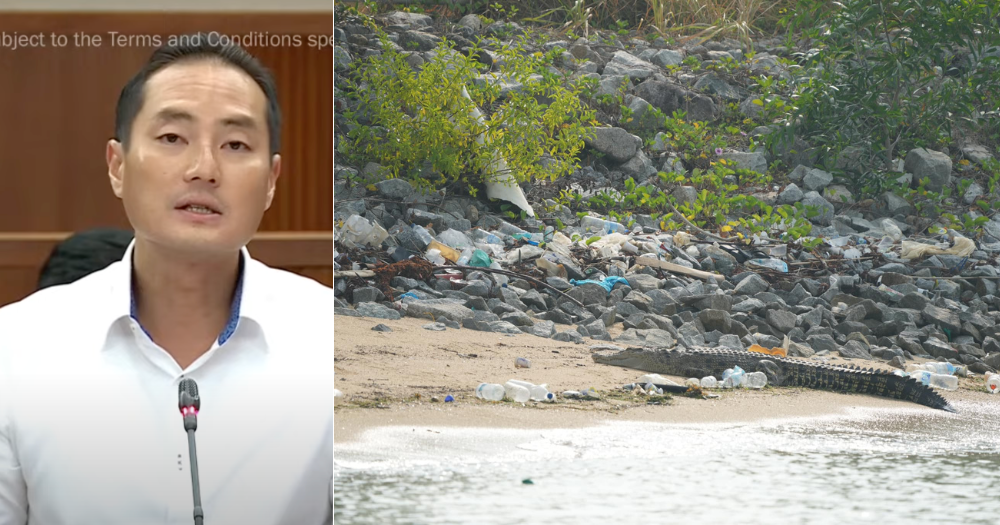National Parks Board (NParks) considered relocating the crocodile spotted basking near Marina East Park on Oct. 10, 2023, to Sungei Buloh Wetland Reserve, but the reserve is already at full capacity — with about 20 crocodiles.
The crocodile was subsequently "humanely put down to safeguard public safety".
Senior Minister of State for the Ministry of National Development, Tan Kiat How, disclosed the information during Parliament on Nov. 7, 2023, in response to Member of Parliament Nadia Ahmad Samdin's question about the crocodile.
She asked if there is a framework to decide the appropriate strategy for urban wildlife management and what factors determine the approach for different species.
Public safety is a major consideration
On the morning of Oct. 10, a crocodile was spotted basking near Marina East Park.
The crocodile sighted was a large, adult estuarine crocodile, measuring around three metres long. It was spotted around 2km away from East Coast Park, which is about a 10-minute swim for the crocodile.
Tan explained that public safety is a major consideration as crocodiles are "apex predators and stealthy opportunistic feeders".
He pointed out that crocodiles have attacked both children and adults in other countries.
For Singapore, Tan said NParks will assess if there is an immediate threat to public safety. For example, if the crocodiles are sighted at a recreational destination, NParks will trap the crocodile and try to relocate or rehome it.
Tan added that estuarine crocodiles have "strong homing instincts" and might return to the location of capture.
Crocodile assessed to be unsuitable for Zoo
Mandai Wildlife Group (MWG) determined that it would not be able to rehome the crocodile, said Tan.
MWG considered multiple factors in zoo population and planning, which include whether the outcome of the move will favour the animal in terms of quality of life and welfare, as well as possible negative effects on the zoo's institutional population planning.
"In this case, MWG determined that it will not be able to rehome the crocodile in a way that met this criteria."
Euthanasia done with accordance to international standards
"If there are no suitable options for relocation and rehoming, the crocodile will be humanely put down. This approach is aligned with that take in many other jurisdictions that have crocodiles or alligators," Tan said.
Tan emphasised that the decision to euthanise the crocodile was not taken lightly. There was no feasible option for relocation or rehoming, so NParks had to euthanise the crocodile in the interest of "public safety".
He pointed out that if the crocodile decided to return to Marina East Park, it might venture to East Coast Park or another area with high human activity along our coastline.
"The euthanasia was done by a veterinarian in accordance with international standards," he said.
Measures put in place to mitigate risk to public safety
NParks have added measures in place to protect the public from Singapore's wild crocodile population, Tan said.
At Sungei Buloh, fences were installed to prevent crocodiles from getting onto footpaths. In addition, NParks installed signs to alert visitors to the presence of crocodiles and advise them to remain calm and back away if they encounter a crocodile.
NParks also conducts regular population surveys of the reserves' crocodiles and explores the use of technology to track their movements.
"NParks will continue to monitor and carefully manage the populations of local wildlife species to safeguard public health and safety," Tan said, adding that NParks will also deepen its collaborations with partners to promote safe and responsible human-wildlife encounters in Singapore.
Related stories
Top photos via CK Lee and MCI/YouTube
If you like what you read, follow us on Facebook, Instagram, Twitter and Telegram to get the latest updates.



